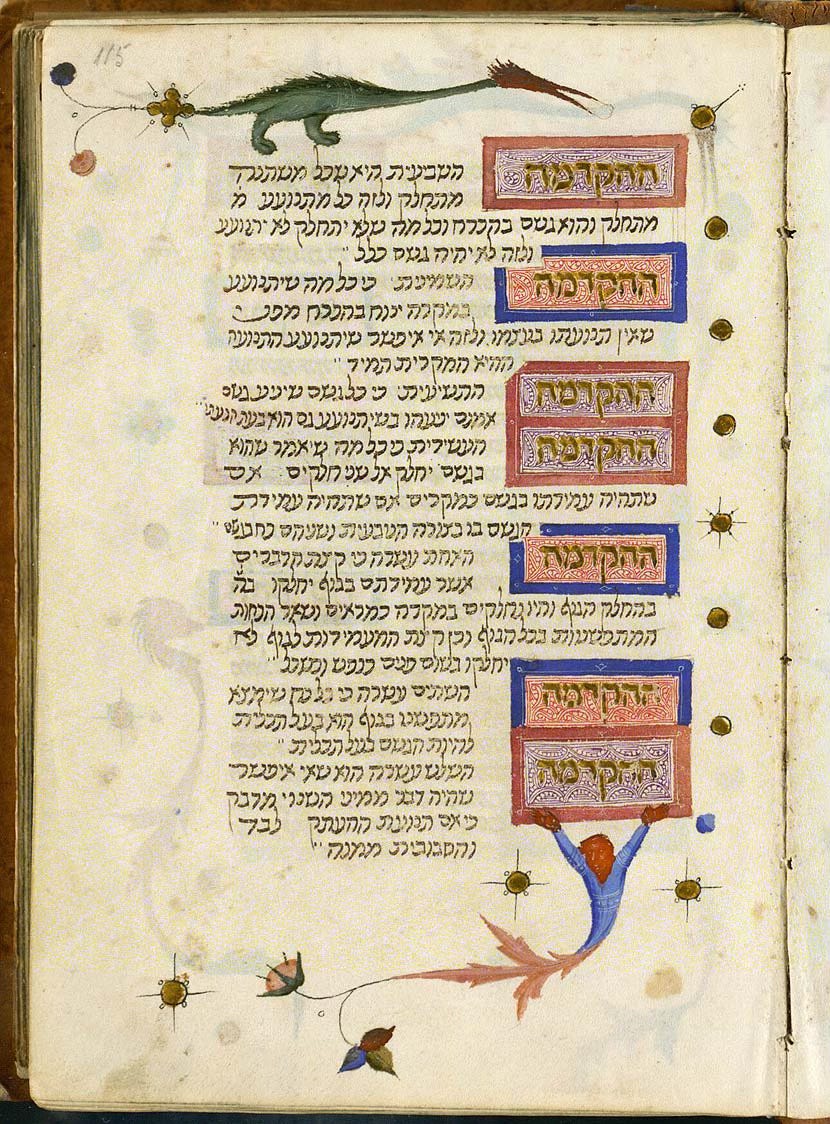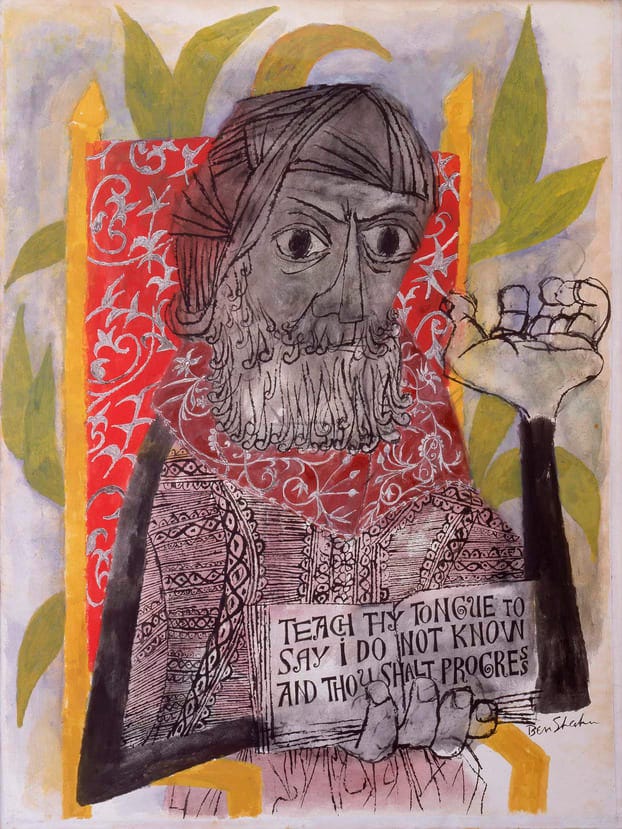
"You are well equipped for the task, because the Creator has given you a mind gifted to 'understand parables and their meaning, [as well as] the obscure sayings of the wise.' I sense from your statements that you completely master the subject and that its innermost meaning is clear to you."
Maimonides’ comment on Samuel (Shmuel) ben Judah (Yehudah) ibn Tibbon’s translation of the Guide for the Perplexed from Arabic into Hebrew
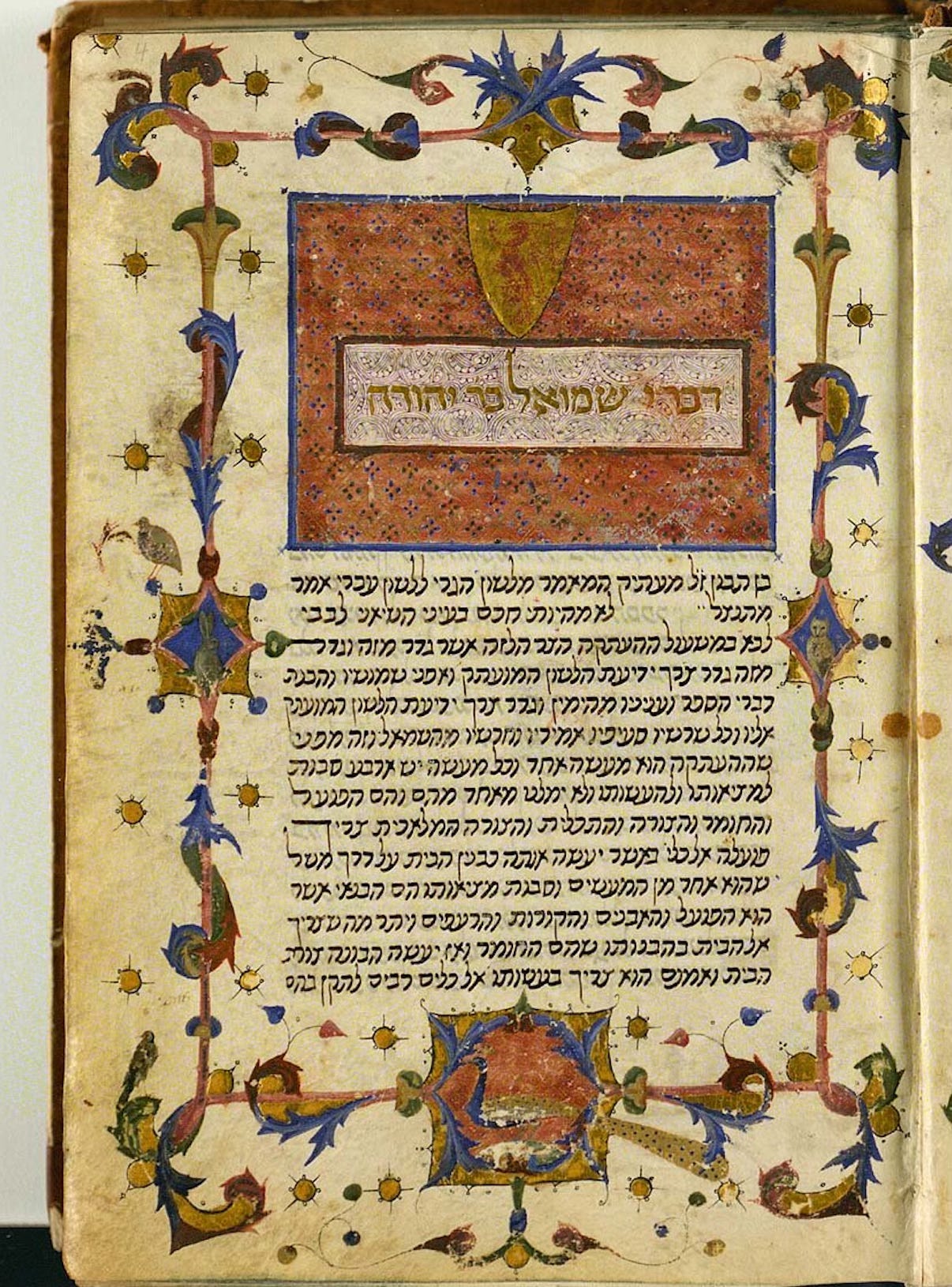
Maimonides’ the Moreh Nevukhim ('Guide for the Perplexed') represents an attempt to reconcile traditional Jewish theology with that of the highly influential Aristotelian philosophy of the time. This was made possible by the rediscovery of Greek philosophers, which led to a philosophical questioning of religious dogmas among Jews, Christians, and Muslims. The text was written in Judeo-Arabic (Arabic written in Hebrew letters; its original title is transcribed as Dalalat al-Ha'irin), and is considered the pinnacle of medieval Jewish philosophy. It has also influenced Christian scholasticism.
The text discusses central Jewish dogmas as presented in the biblical text from a philosophical standpoint, emphasizing the spiritual significance of the sometimes corporeal descriptions of the divine realm.1
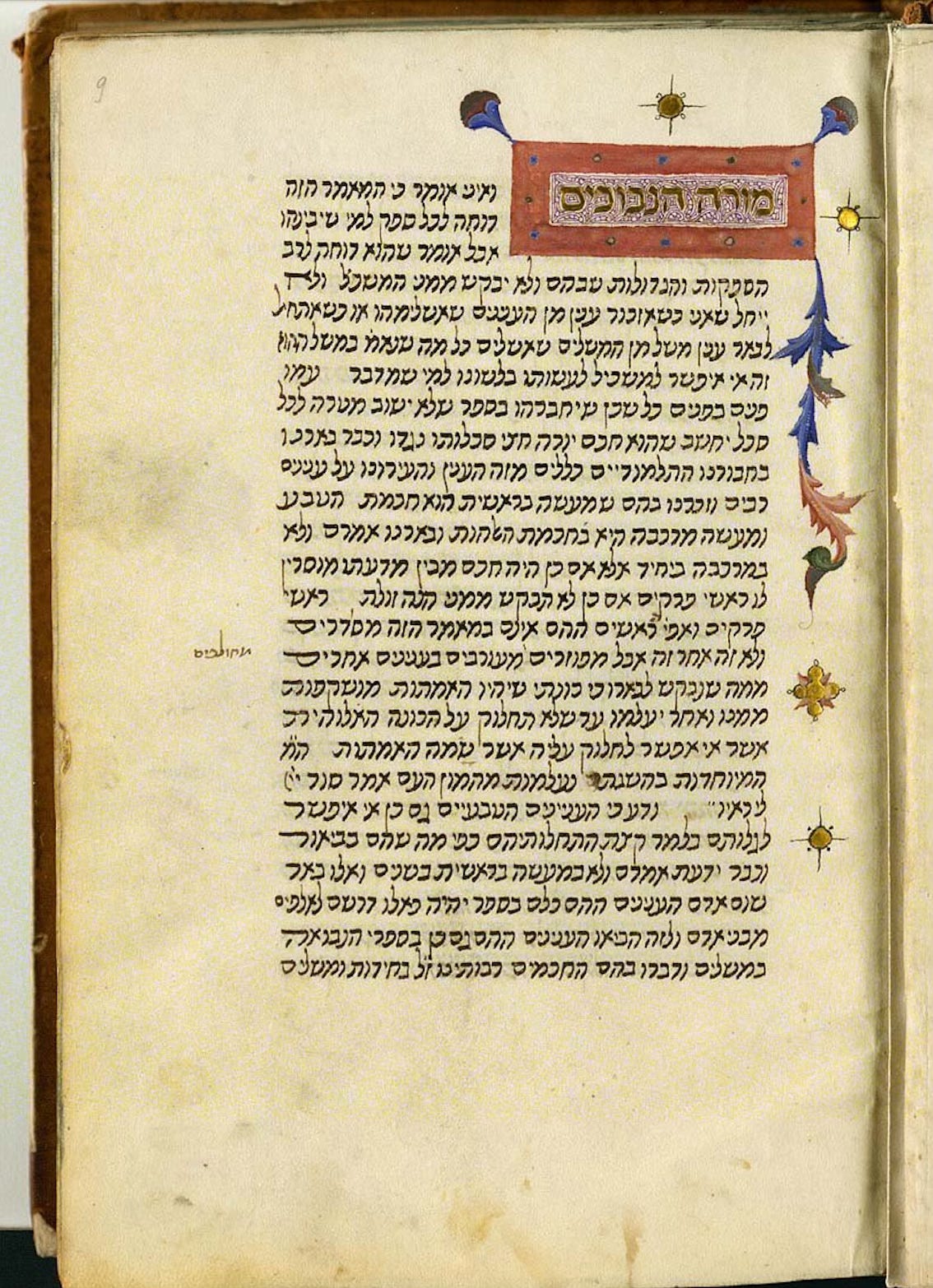
The manuscript was commissioned by Menachem Betsalel, a doctor in Barcelona in the service of the Catalan King Pedro IV. Scholars believe that some of the images in the manuscript were made by Ferrer Bassa, a head of a well-known art workshop in Barcelona.
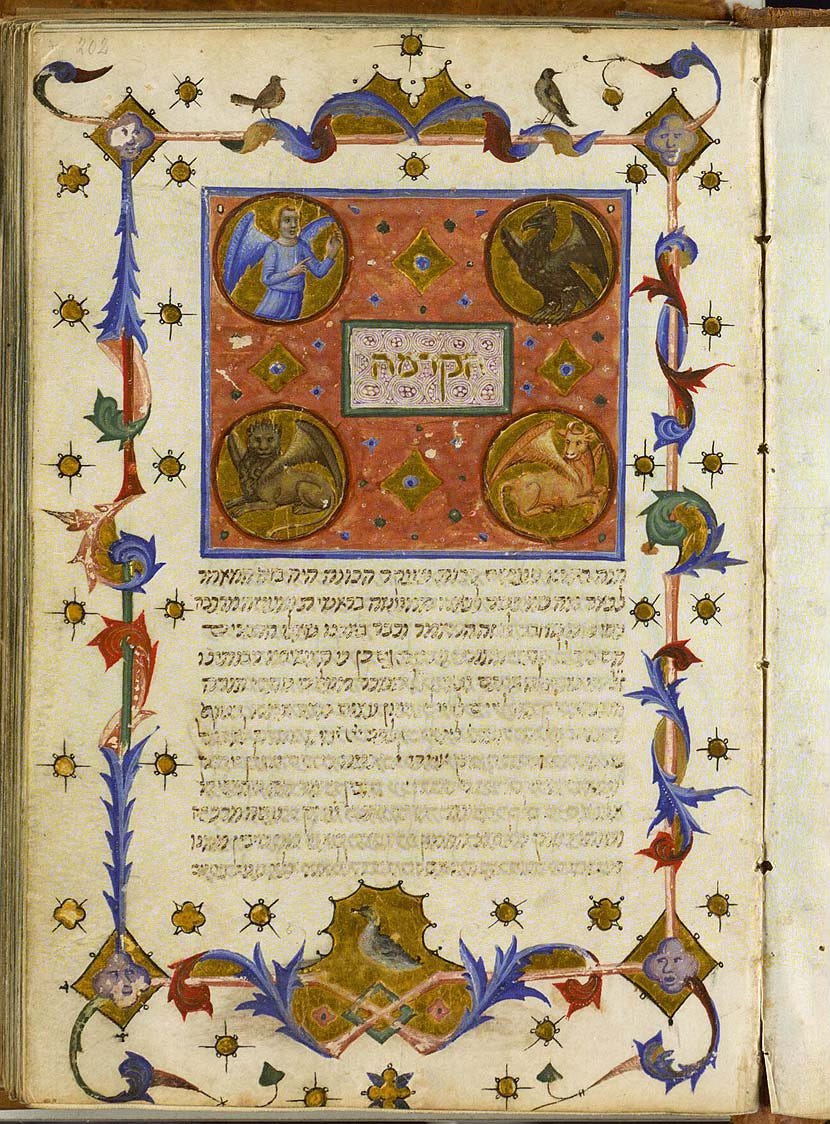
Eager to learn more? Check out the article below by Evelyn M. Cohen and some of my earlier posts. Happy reading!
Thank you so much for being here, for reading and sharing my work.
If you enjoy,
click the ❤️ button
share it with someone else
leave a comment and/or
buy me a 🧁
https://www.kb.dk/en/find-materials/collections/judaica-collection/guide-perplexed
From Moses to Moses, none arose like Moses
Have you ever applied a centuries-old wisdom to everyday circumstances? Were you ever inspired by a genius of a historical figure? And finally, did you catch yourself lately contemplating on Artificial Intelligence (AI) and its potential to “ruin” our creativity and curiosity, ability to learn, to write or critically think?
In the wilderness
Dear reader, I am roaming the world, with a limited access to the Internet. So, I am sharing only one page, a colophon (a scribe’s note) from the Maimonides’ the Moreh Nevukhim ('Guide for the Perplexed') with a promise to write more about it next time.





